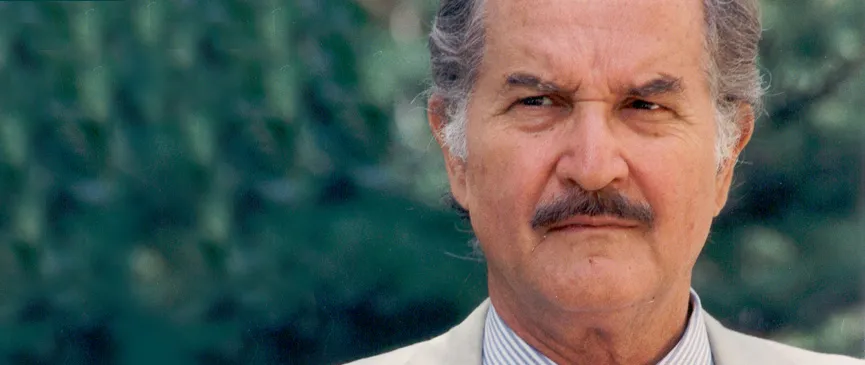Main content
Carlos Fuentes Prince of Asturias Award for Literature 1994

Carlos Fuentes (Panama, 1928 – Mexico City, Mexico, 2012), being the son of a diplomat, spent his childhood and youth frequently moving from one place to another: Argentina, Chile, Brazil, the United States and elsewhere. He founded and ran the Revista Mexicana de Literatura (1955-1958), and was also co-editor of El Espectador, and other magazines.
He had a long diplomatic career, as a member of his country's delegation to the International Labour Organisation (ILO) in Geneva, as a member of the Ministry for Foreign Affairs´ press department, and director of the ministry's Department of Cultural Relations.
He was a professor of Literature at the University of Princeton, and had also taught at the universities of Colombia, Harvard and Pennsylvania, among others. He went back into diplomacy from 1974 to 1977, as his country's ambassador to France, but resigned when Gustavo Díaz Ordaz was appointed as the Mexican Ambassador to Spain, considering him to be one of those responsible for the bloody events in the Plaza de las Tres Culturas (October 1968). In 1975-76, Carlos Fuentes chaired the Mexican delegation at the International Conference of Economic Co-operation.
The author of numerous essays which have contributed to our understanding of the new Spanish-American novel, and to the study of Mexican history and society, in 1977 he published Terra nostra, one of his most representative works, which is a plea for individual freedom in modern society (and winner of the Venezuelan Rómulo Gallegos Prize). Among his other novels are: La región más transparente (1958), Aura (1962), Una familia lejana (1980), Gringo viejo (1985), La campana (1990), El naranjo o los círculos del tiempo (1993), Diana o la Cazadora Solitaria (1994), Instinto de Inez (2001), La silla del águila (2003), La voluntad y la fortuna (2008), Adán en Edén (2009), Vlad (2010) and Federico en su balcón (2012).
A friend of Luis Buñuel, he was also a scriptwriter for television; has written volumes of short stories and plays such as "El tuerto es rey" (1974) or "Todos los gatos son pardos" (1970). He was awarded the Cervantes Prize in 1987 and his country's national Literature Prize in 1984, in addition to many other distinctions.
End of main content
